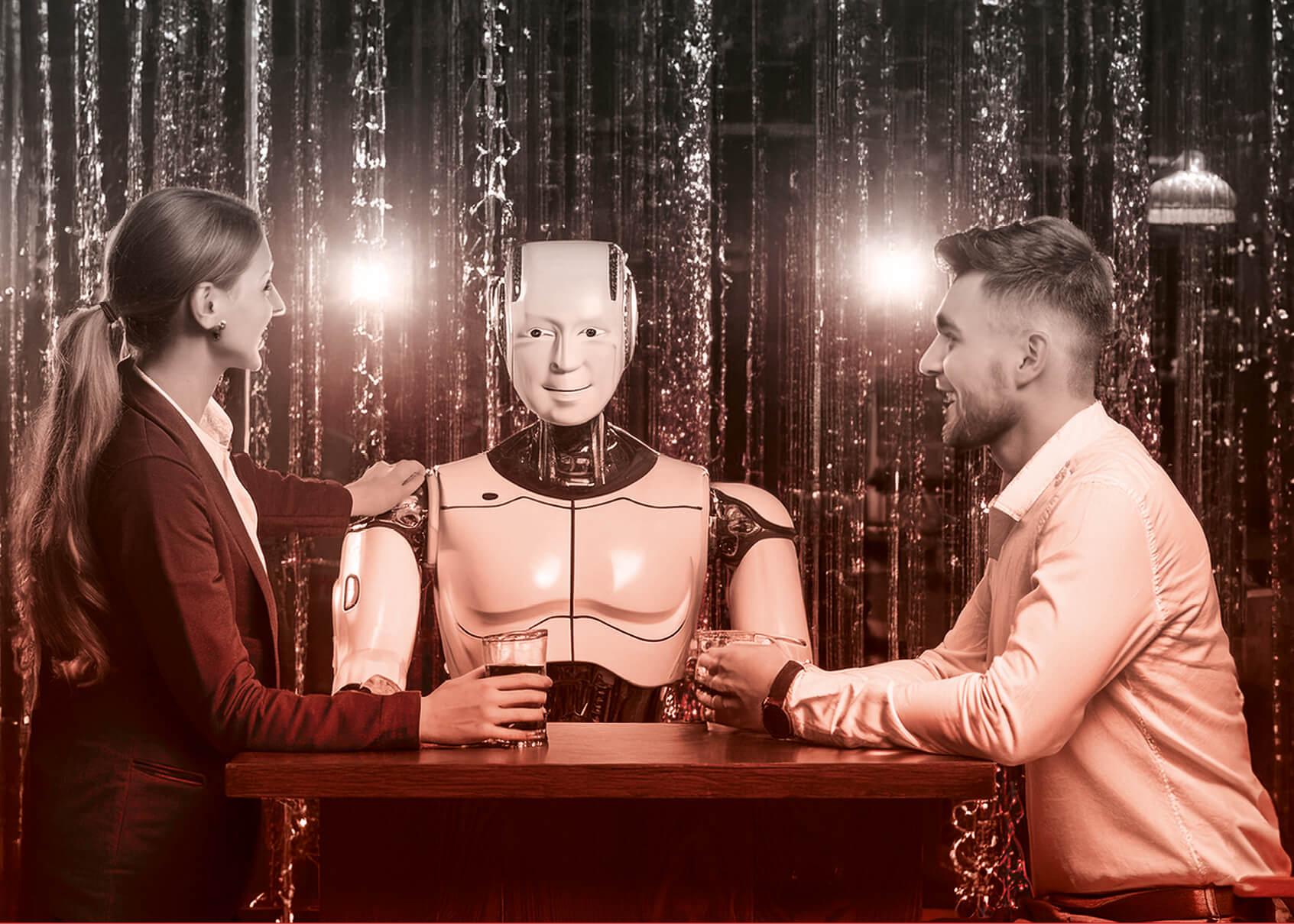The European Union is not in crisis, but has a long-term problem, says Miroslav Singer, economist, former governor of the Czech National Bank, now director of institutional relations and chief economist at Generali CEE Holding. He does not want to guess what the world will look like “after Trump”, but he does not give Europe good prospects: If European elites do not realise that many regulations need to be lifted and the ageing population needs to be addressed, we will face a process of impoverishment. But this, he says, may be quite socially bearable.
It’s a few months after Donald Trump took office as president and the whole world is upside down. There are opinions that nothing will ever be the same again. How do you see it? Donald Trump’s presidency will end one day. Can things not go back to the way they were?
Just yesterday, a friend from America sent me a link to an interesting article in the New York Times, which was definitely not written by a Trump fan. The gist of the article is that Donald Trump and his team came into office with the intention of fundamentally changing the United States and destroying the existing elites. They feel this is their mission and have tremendous energy to do so. The author writes that they are driven by, among other things, the experience of the first presidential term, retribution, revenge, and at the same time a sense of the fundamental problems the country has, as well as the wishes of the voters who want that change. All of this is behind the action. And I think that assessment is pretty accurate. Certainly more accurate than saying it’s just a lot of fuss for nothing.
Finally, a year and a half ago, Henry Kissinger, the former US Secretary of State, said that there are people who will become a symbol of change – more or less because the times want that change and they can name it. And Donald Trump can do that. A decisive part of the American electorate wanted fundamental change and, even knowing what Trump is like, voted for him.
So after four years of Donald Trump, will things really be any different?
He is also driven by the fact that after the midterms he will most likely no longer be able to change laws, because he will lose one of the two branches of the US Parliament. So he has only two years to make fundamental changes. Some of what he wanted to push through has already been signed and approved, some has been postponed, but it cannot be changed either.
And then there is one more thing to remember. Donald Trump is negotiating in a way that he wants a lot at the beginning in order to get some of it at the end. That is what we are currently experiencing. We’re all laughing uproariously at the nonsensical tariffs he presented on that table in the White House backyard, and in the end, it came down to 10 percent. But ten per cent is about six times more than the EU and other countries had before! And we laugh at that and take it as our victory? In fact, we lost.
So back to the original question: what will the world economy, trade look like after Donald Trump leaves?
It’s hard to say. We’re in the fourth month of Trump’s effective reign, and do we want to guess how those games he started will end? We can’t, because this is not some plan being implemented by the evil mafia like in a Bond movie. Reality changes somehow, other countries react somehow. It’s a waste of time to speculate in this disruption how it will turn out.
Okay, so let’s take a look at what the current situation is, regardless of Donald Trump. And let’s stay in Europe. Would you say that the European Union is in some sort of crisis or heading towards a crisis?
I think the EU is in a long term permanent problem.
But you wouldn’t call it a crisis.
No, no. A crisis for me is a situation where I know I have to make a change because I realise that if I don’t, the company or something else will cease to exist. In that sense, we are not in a crisis because the European elite are not considering any change. We have elected to the European Parliament a grouping that allows, in principle, a repetition of the previous European Commission and, even in most countries, the post-election results have made it possible to form coalitions whose main leitmotif is ‘nothing must change’.
“Donald Trump and his team came into office to fundamentally change the United States and destroy the existing elites.”
Because it can work like this for a while.
That’s right. And that’s not a crisis. Well, it’s kind of living it up. I think few people rationally believe in that model anymore, but it provides enough benefits to the current elite that they don’t want to change it. It’s just: we’ll stick it out for a few more years and then we’ll move to our cottages in Sicily or Spain and we’ll pay for it somehow.
So it’s not a crisis. It will be a crisis when everybody understands that something has to change.
There are countries that are close to a crisis, particularly France, which has an absolutely fundamental problem with the financing of its state. It looks like Germany will also have a big problem when the AFD takes the lead in popularity in the long term. And that will happen because the new government is extremely unpopular. Germany has a big migration problem, it has an energy problem.
But it’s not a crisis anywhere yet.
There is no crisis, but you said the EU is in a long-term and permanent problem. How did that happen? Where are the origins of the problem?
I think that we have an inefficient model of decision-making in Europe and at the level of our state, which also allows people who are not up to the job to get into leadership positions.
Can you explain that?
People generally don’t want change. Let me give you an example from the Czech Republic. We all know that we have an incredible number of municipalities, which is very inefficient, but everyone refuses to merge. Another example is health care. The population is ageing dramatically – whereas at the end of the 1990s we had about 14% of people over 65, today we have over 20%. According to the studies that are available, a person consumes roughly one-third to one-half of all health care costs in his or her lifetime in old age. So something needs to be done about health care. But at the moment everything is still working, there is not the recognition in society that something needs to change. Most are still doing well.
But a lot of things have changed recently, and in the European Union the problems are already being talked about, although not much has changed yet.
Yes, that is true, there is a will to talk about it now. However, we have a specificity here in Europe that I do not think exists to such an extent in America or Asia. We live under the illusion that when something is written, it is as if it has already been done. We don’t distinguish between words and reality. If I paint a bison on the wall, I’ve actually almost hunted it. It’s called a mythic relationship to reality.
And this also applies to the strategies that all governments and the European Union create. But if we look back at home: it is wanting. You commonly hear the criticism that “the government has not created a strategy” for this or that.
“Europe has an inefficient decision-making model.”
Strategy can be a good thing when it is well prepared and then executed.
Yes. But in our country, both in the Czech Republic and in the EU, it is often different. It is considered a success when a previous proposal is stopped. Again, I have a nice Czech example. The current head of the Chamber of Commerce, together with the Ministry of the Interior, fought for many years for the abolition of birth numbers. The justification was that they were an interference with your fundamental rights, because they could tell whether you were a man or a woman. That ‘battle’ lasted perhaps ten years. Today we are happy that it has been stopped. It’s just that when you have enough programs whose success is that they don’t happen, it keeps you busy, but it doesn’t produce anything productive.
And now I’m going to go back to Europe. In the EU, we are responding to the current problems by suspending or limiting something that we have laboriously developed before. These are the famous omnibuses delaying the introduction of ESG reporting and so on, which are now being debated by the European Parliament. And we are celebrating the victory of common sense. This is what is exhausting us. And nobody asks who is responsible. Those who would like to ask are often excluded from the European debate.
In your opinion, can legislation related to the Green Deal be included in this category?
I am probably not quite in a position to analyse the Green Deal. Of course, I can have the objective of removing emissions. But it does not seem to me that major economies like Germany are going in that direction. The use of gas may result in fewer emissions in Germany, but how much of those emissions come from the extraction of that gas? This is terribly inefficient. Any purposeful activity has to be a trade-off between the goal and the cost of achieving it. From this point of view, the European Green Deal is obviously terribly expensive. But I must point out that no one at EU level is giving a moment’s thought to abandoning the Green Deal’s objectives.
There is no debate at all about costs in the EU, so no one even thinks of questioning the targets.
Speaking of strategies, what is your assessment of the Clean Industrial Deal, a strategy that outlines measures to reduce energy costs, promote investment in clean technologies and simplify the rules on sustainable financing. The main objectives include accelerating the transition to a low-carbon economy, promoting energy-intensive industries and developing the circular economy. So, if you have had the opportunity and inclination to look at this document?
It is a somewhat confused proposal of piecemeal measures, more ‘bison drawn on the wall in charcoal’, and proposals to pass on costs – for example, those that would reduce energy prices for consumers – more to Member States so that the effects caused by the EU, here by the price of allowances, are not seen.
As far as the car industry is concerned, there is a little bit of something going on after all. But it is probably also more in the category of ‘let us rejoice, we have postponed regulation’.
How can the EU be effective and have the need to change if the biggest success we can consider is that something is not introduced or is postponed?
So what to do about it? Where to start? How to get Europe moving, how not to lose competitiveness further?
I think that the first thing we need to do is to start a debate that signals that something is seriously happening. Start talking about deregulation, about abolishing some rules, because the problem is not that they are not good, but that there are too many of them. It will not be easy, because people want a lot of rules, there is a demand for them. People feel that if something is written, it is done.
Let’s take a closer look at the automotive industry. If the targets, which in the case of the automotive industry mean – to put it simply – switching completely to the production of electric cars by 2035, cannot be counted on, how can it be made competitive again?
Europe thought it would benefit from a technological lead with the advent of electro-mobility. I am fascinated that anyone could think that they would have any advantage by assembling four-wheel technology imported from China here. It has long puzzled me why those successful European car companies go for it. Then a fellow banker mentioned that the car companies probably thought they would make more margin out of it because it is much easier to make an electric car than a conventional car with an internal combustion engine – if you have batteries. And they didn’t realize that if it’s that easy, every other manufacturer can start doing it.
China has not just overtaken us because of the subsidies to manufacturing, although they are really the biggest of all the subsidies in the world. They have raw materials that we have to import. That has been a basic principle of industrial production since the 19th century – transport as few raw materials as possible.
Even this could change over time, for example, lithium mining in Cínovec is being considered.
That would certainly be a good signal that we are serious. But, I don’t know, we are talking about a continent that has banned shale gas extraction, even though there are apparently more deposits in Europe than the United States has. All this in the midst of an energy crisis. Just recently, the Netherlands also confirmed a ban on exploration of what is probably the largest untapped natural gas field in the EU.
If a lithium mine were to open up, it would certainly not be very quickly. Critical raw materials for electro-mobility will be limiting for European industry for a long time to come. So what is the worst-case scenario for European car companies?
Either some other investor, perhaps from China, buys them and produces them more cheaply, or they close, and that is also possible. And that will be a big problem, because there are a lot of suppliers tied to that production.
And on the battery production – we have seen what happened with the Norwegian manufacturer supported by subsidies. Europe is still living under the idea that some strategy, some brilliant industrial policy, will help it. Even the Draghi report, I think, is burdened with an incredible faith in the ability of the state to correctly identify what to focus on and what to support. But in the last 20 years, I do not see any strategy that will get us anywhere.
So Europe is not going to have a good time? The industry is going to decline and we are all going to slowly get poorer?
If things continue like this, yes. But the process of impoverishment and ageing is, in principle, socially quite bearable in the long term. Japan, which in the 1990s aspired to overtake the United States in economic terms, is a case in point. At that time, Japan accounted for ten per cent of the world economy. Today it is three per cent. It was quite a rapid decline, driven primarily by an ageing population.
So a country can stagnate and gradually get poorer, all without any great social tensions – as long as there is something to tax and someone to lend the country money. That’s why I mentioned France – it’s the country that could be the first to get into trouble because of its already high debt levels. And it doesn’t look like anything is going to change there because of the political situation
So those are the two major problems we have: an ageing population and too much regulation.
And now we have another serious problem, and that is the lack of security. So we’re going to have a big expenditure on armaments, which will have to be covered in large part by debt. Although the Czech Republic is not in a bad debt situation, is it wise to finance this future expenditure with debt? Couldn’t savings be made somewhere?
If the decision is between not arming and arming on debt, I am clearly in favour of the second option, because strengthening security is essential. Moreover, as you rightly say, we have no problem with over-indebtedness.
We could certainly save money somewhere, but it is again a question of the state’s ability, of its willingness, or rather unwillingness, to find savings. Again, it is to do with what we want as citizens, with the unwillingness to change. We do not want to save money, we want to keep all the post offices, the hospital in every small town and the high-speed railway that will be built every five kilometres.
We have no need for the urgency of change, and that is the whole problem.
Contact
Next articles and interviews
Next articles and interviews
+ Show









